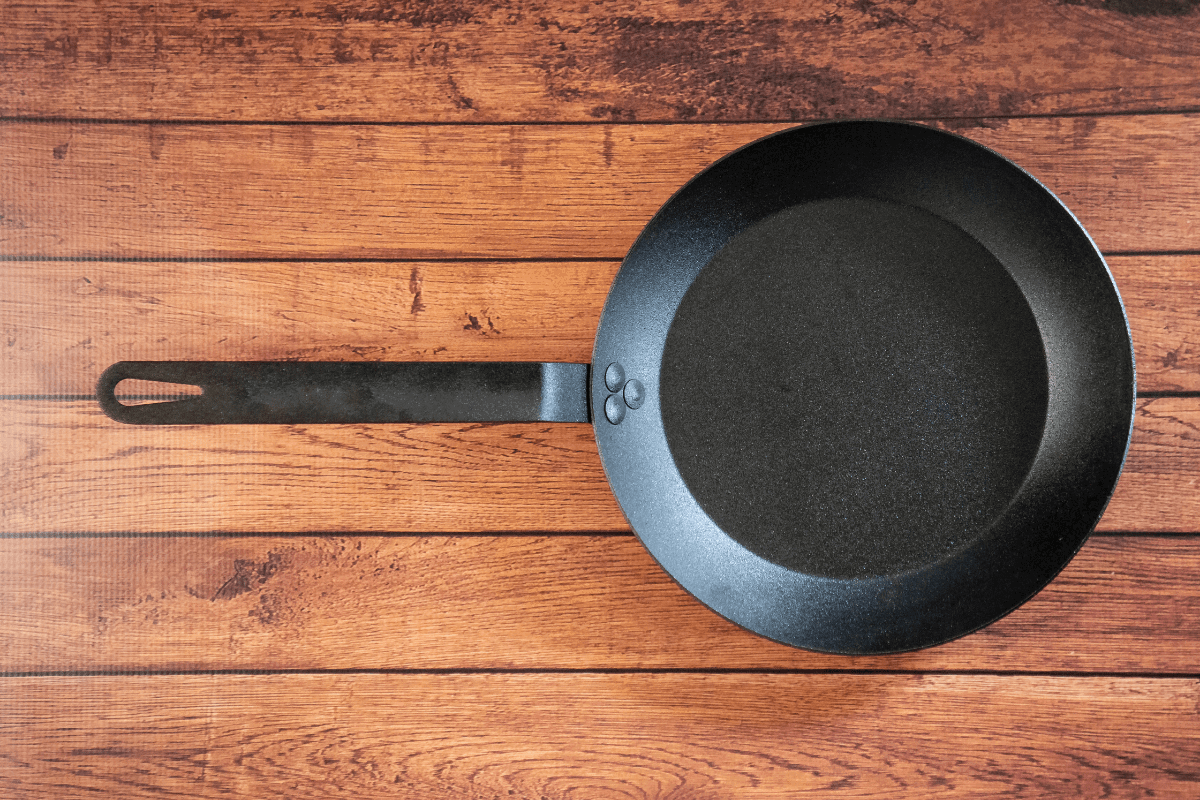Vegetable oil is a versatile ingredient that works equally well with high heat cooking as it does raw in dressings and sauces.
After working in professional kitchens for over a decade, I’ve dealt with every vegetable oil substitute you can think of, and for every reason. Sometimes your delivery truck doesn’t show up, and sometimes a cook spills several gallons on the floor right before service…(deep breaths).
But, no matter what the reason, the cooking must go on. Any high smoke point oil with a neutral flavor will do, but here are the 7 best options that I’ve come across in my years on the line.
In This Article
What Can I Substitute For Vegetable Oil?
1. Canola Oil

Canola is made by pressing rapeseeds, a flowering plant in the brassica family. Think relatives like cabbage and broccoli.
Aside from vegetable oil, canola is one of the most widely used and least expensive options available. So, even if you don’t already have a bottle in your pantry, you can easily find this substitute in just about any food store you enter.
You can use canola oil in equal amounts and in any recipe that calls for vegetable oil. In some cases, products labeled as “vegetable oil” will contain canola oil by itself or as a blend. So, I would consider this one step up from “vegetable oil” since you know exactly what you’re getting.
2. Sunflower Oil

Sunflower oil is another great all-purpose, vegetable oil substitute. It’s made from sunflower seeds, has a very neutral flavor, and a high smoke point of 450 F.
You can use sunflower oil in equal amounts to vegetable oil, working just as well in raw applications as cooked. And while not quite as affordable as canola, this is still one of the least expensive alternatives that you’ll find.
3. Rice Bran Oil

Rice bran oil is made by pressing the hard outer layers of brown rice grains. And while maybe not a household staple, this is the unsung hero of many a restaurant deep fryer.
The reason for this is that rice bran oil stands up really well to high heat cooking and offers the best bang for your buck when it comes to smoke point and cost.
At 490 F the smoke point is higher than vegetable oil, but not quite as high as a couple of the other options coming up. But, it’s also not as expensive. Especially if you’re willing to take a trip to your local restaurant supply store and buy in bulk.
And while rice bran is an excellent choice for deep frying, searing, and stir-frying, it’s also just as useful raw in sauces and dressings.
4. Safflower Oil

Safflower oil is made from the seeds of a flowering plant in the same family as the sunflower. And you can also think of this oil as a slight upgrade to its sunflower oil relative.
It has a similar neutral flavor but with a more impressive 510 F smoke point. The price is generally a touch higher, so maybe skip the deep fryer. But the incredible heat tolerance makes this one of the best oils to use for blisteringly hot cooking on a grill or in a wok.
5. Light Olive Oil

Olive oil is a well-known staple in many kitchens. I might even wager that you have some in your pantry as you’re reading this right now. But, there’s also a good chance that it’s the extra virgin variety rather than the light one.
Extra virgin olive oil is rich, packed with flavor, and has a relatively low smoke point. All things that are good in some situations, but not when you’re looking for the neutral flavor and high smoke point of vegetable oil.
Light olive is still made from the same thing as its extra virgin cousin, but it’s been further refined. And that leaves it with a higher smoke point, less flavor, and even a lower price tag. All things that make this a great vegetable oil alternative.
6. Avocado Oil

Avocado oil is made by pressing the pulp of the avocado fruit. It’s an impressive all-purpose cooking oil that has exploded in popularity in recent years. And for good reason.
While avocado oil is often on the expensive side, it can do everything these other oils can, just better.
With avocado oil, you get an incredibly high 520 F smoke point, a rich but still neutral flavor, and a seemingly endless number of health benefits.
So, while I probably wouldn’t go filling a deep fryer with the stuff, avocado oil makes for a great elevated substitute for vegetable oil.
7. Peanut Oil

Peanut oil is a great vegetable oil substitute that brings just a touch of its own nutty flavor to the party.
In many cases, peanut oil is pressed from lightly roasted nuts, which adds a delicious and toasty depth of flavor. You can use peanut oil for anything you would vegetable oil, but it’s one of my personal favorites when it comes to Chinese, Thai, and Vietnamese dishes.
It has a high smoke point that can stand up to wok cooking and the flavor pairs particularly well with the cuisines of those regions.
And while not always the least expensive option, peanut oil is a great choice for deep frying, especially when french fries on the menu.
Tips For Working With Vegetable Oil Substitutes
Vegetable oil is a generic name that can be used for cooking oils that come from any plant-based source. Using a label that says “vegetable oil” gives manufacturers the flexibility to use different types of oils (or blends) depending on what’s available and what’s affordable.
Since vegetable oil encompasses a variety of different neutral-flavored, high smoke point oils, it’s an easy oil to substitute for. You can use any of the options above in equal amounts and in any recipe that calls for vegetable oil.
When buying “vegetable oil”, you don’t always know exactly what you’re getting. It could be soybean oil, corn oil, or a blend of several different types.
So, by going with an alternative that tells you exactly what it is and what plant it came from, you’ll probably end up with a better and more consistent product. The only downside is you’ll probably end up paying a little bit more.
Frequently Asked Questions
Can I Use Butter As A Substitute For Vegetable Oil?
Butter is not generally a good substitute for vegetable oil. Butter contains a lot more solids and is not nearly as refined as vegetable oil. That means it behaves very differently and has a much lower smoke point.
Does Vegetable Oil Have A High Smoke Point?
Vegetable oil is considered a high heat oil and has a smoke point between around 400 and 450 F.
What Are The Best Substitutes For Vegetable Oil?
You can use any plant-based cooking oil that has a neutral flavor, high smoke point, and remains liquid at room temperature. Canola, grapeseed, and safflower seed oil are a few of the best options.







